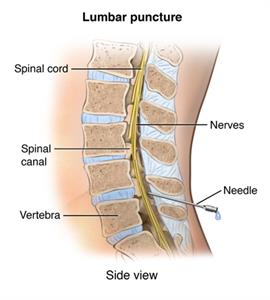Increased Intracranial Pressure (ICP) Headache
What is increased intracranial pressure (ICP)?
A brain injury or another medical condition can cause growing pressure inside your skull. This dangerous condition is called increased intracranial pressure (ICP) and can lead to a headache. The pressure also further injure your brain or spinal cord.
This kind of headache is an emergency and requires immediate medical attention. The sooner you get help, the more likely you are to recover.
What causes ICP?
Causes of ICP:
- Too much cerebrospinal fluid (the fluid around your brain and spinal cord)
- Bleeding into the brain
- Swelling in the brain
- Aneurysm
- Blood pooling in some part of the brain
- Brain or head injury
- Brain tumor
- Infections such as encephalitis or meningitis
- Hydrocephalus
- High blood pressure
- Stroke

What are the symptoms of ICP?
These are the most common symptoms of an ICP:
- Headache
- Blurred vision
- Feeling less alert than usual
- Vomiting
- Changes in your behavior
- Weakness or problems with moving or talking
- Lack of energy or sleepiness
The symptoms of ICP may look like other conditions or medical problems. Always see your healthcare provider for a diagnosis.
How is ICP diagnosed?
To diagnose ICP, your doctor may do the following:
- Medical history and physical exam including a neurological exam to test senses, balance and mental status
- Spinal tap (also called lumbar puncture), which measures the pressure of cerebrospinal fluid
- Computed tomography (CT) scan, the gold standard imaging test, creates a series of cross-sectional X-ray images of the head and brain
Magnetic resonance imaging (MRI) (used after the initial assessment)uses magnetic fields to detect subtle changes in brain tissue content and can show more detail than X-rays or CT

How is ICP treated?
Increased intracranial pressure is an emergency. Treatment might include:
- Medicine to reduce swelling
- Draining extra cerebrospinal fluid or bleeding around the brain
- Removing part of the skull (craniotomy) to ease swelling (though this is rare)
You may also be treated for the underlying cause of your intracranial pressure, which could be an infection, high blood pressure, tumor, or stroke.
What are the complications of ICP?
ICP has serious complications, such as:
- Seizures
- Stroke
- Neurological damage
- Death
Can ICP be prevented?
You can reduce your risk of certain underlying conditions that may lead to ICP such as high blood pressure, stroke or infection. If you have any of the symptoms, get medical attention immediately.
When should I call my healthcare provider?
Call your doctor or 911 if you have any of the symptoms listed:
- Severe headache
- Blurred vision
- Feeling less alert than usual
- Vomiting
- Changes in your behavior
- Weakness or problems with moving or talking
- Lack of energy or sleepiness
- Seizure
Key points about increased intracranial pressure (ICP)
- ICP is a dangerous condition.
- It is an emergency and requires immediate medical attention.
- Increased intracranial pressure from bleeding in the brain, a tumor, stroke, aneurysm, high blood pressure, brain infection, etc. can cause a headache and other symptoms.
- Treatment includes relieving the brain of the increased pressure.
- ICP has serious complications including death.
Next steps
Tips to help you get the most from a visit to your healthcare provider:
- Know the reason for your visit and what you want to happen.
- Before your visit, write down questions you want answered.
- Bring someone with you to help you ask questions and remember what your provider tells you.
- At the visit, write down the name of a new diagnosis, and any new medicines, treatments, or tests. Also write down any new instructions your provider gives you.
- Know why a new medicine or treatment is prescribed, and how it will help you. Also know what the side effects are.
- Ask if your condition can be treated in other ways.
- Know why a test or procedure is recommended and what the results could mean.
- Know what to expect if you do not take the medicine or have the test or procedure.
- If you have a follow-up appointment, write down the date, time, and purpose for that visit.
- Know how you can contact your provider if you have questions.



